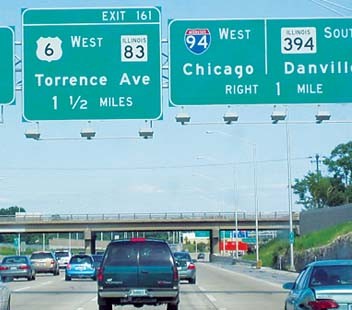“Commuter.”
A lot of Downstaters hear that word and think of a driver trapped during an afternoon rush in August on Chicago’s westbound Ike, which – and I know what I’m talking about here – is enough like hell that even an old sinner will repent by the time he gets to Austin Avenue. Yet commuting is as much a way of life in Springfield as it is in Chicago. It’s been estimated that nearly 20 percent of the people who worked in Sangamon County in 2009 drove to and from those jobs from outside the county. I’ve no idea how many in-county commuters there are, but the traffic to and from New Berlin, Chatham, Auburn and Riverton is sizeable enough that Illinois Routes 4 and 29, among other roads, have had to be four-laned to accommodate the daily parades of commuters.
The average commute time for all drivers in the Springfield area these days is about 18 minutes each way. As commutes go, that is fast; nationally, it’s more than 25 minutes, and for Illinois the figure is nearly 30. Travel times for Springfield’s out-of-town commuters are much longer. (A law-abiding driver needs 19 minutes just to get downtown from New Springfield.) Any sizeable state office or hospital department is likely to employ at least one stalwart friend of OPEC who drives in every day from Rushville or Bloomington or Effingham or some other place at the edge of the earth.
A life on the road is not one that I would wish for myself, but thousands disagree. Commuters choose to live outside Springfield because of family ties, social comfort, better schools or a reluctance to tax themselves to support a large dependent population. (I refer, of course, to patronage workers.) Such rewards come at a price. Say you live in Beardstown, and thus drive 90 miles a day to and from. That’s 450 miles a week, or – it makes my eyes water just to type this – 22,500 miles a year. If your car or truck gets 20 miles per gallon (the average combined mileage for all U.S. cars and light trucks now on the road, according to USDOT) and you pay $3.50 a gallon for gas, your annual cost of gasoline alone is $3,927.
Anyone who drives that far also spends about 500 hours a year driving back and forth between parking places. “If you are commuting,” wrote Anne Lowrey in Slate recently, “you are not spending quality time with your loved ones. You are not exercising, doing challenging work, having sex, petting your dog, or playing with your kids (or your Wii).” Lowrey perhaps underestimates the number of Americans (especially women) who find the solitary commute a refuge from exercise, work, sex and kids (maybe not the dog), but making the best of a bad thing does not makes it a good thing.
Of course, how people conduct their private lives is none of my business. What is my business, and everyone’s business, are the public policy issues raised by commuting. Personal choices have public consequences, which in this case are profound. For example, the retail price of gasoline covers only a fraction of the larger cost of putting gasoline into that pump, which includes everything from oil spills to refinery pollution. Nor does the pump price cover the public costs of using gasoline, such as greenhouse gas emissions. There are political costs too; Congress has long refused to enact a sensible carbon tax for fear of its cost impacts (and of its political impact on their careers) on mostly rural parts of the country where people drive much more than they do in the cities.
And one must add to the tab the cost of securing oil supplies in the first place. Lately those costs have included oil wars in Kuwait and Iraq and billions in aid given to unsavory sheikhs. The latter is largely what excited the bin Ladens of that part of the world to wage jihad against the U.S., and you know what that has cost us, from 9-11 and the Afghanistan military adventure to the more than $40 billion in non-Pentagon spending for Homeland Security.
Trillions in treasure and uncounted dead, all because.... well, because why? It is not because our commuting neighbors have a soft spot for Hugo Chavez or the Saudi royals (although Chavez and the Saudi royals no doubt have a soft spot for them). Rather, people who choose to pay a great deal to drive are reacting to politically expedient policies crafted by elected officials eager to make other people pay a great deal so their constituents can drive.
Contact James Krohe Jr. at [email protected].



